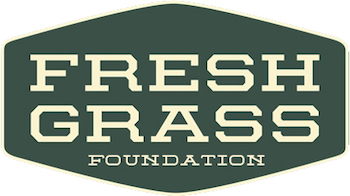Five Songs That Inspire Jake Blount

By Jake Blount, for Folk Alley
As part of Folk Alley’s Pride Month feature, we’ve asked a handful of LGBTQ+ artists to make a list of the songs or artists who most influenced them.
This list was written by Jake Blount and artist-written lists will be running throughout June, alongside the Pride-themed playlist in the Classic Folk stream.
Duke Ellington – “King Fit the Battle of Alabam”
Few in this world who know of jazz have not heard of Duke Ellington. His name is legend—particularly in his and my shared hometown of Washington, D.C. Far less well-known is the name of Billy Strayhorn, who lived from 1915-1967, and was one of Ellington’s closest friends and collaborators. He was a composer, an arranger, a lyricist, and a performer. He was also openly gay and closely tied to the Civil Rights Movement. Amongst his noteworthy contributions to Ellington’s repertoire is this arrangement of an old Black spiritual called “Joshua Fit the Battle of Jericho,” rewritten to honor Dr. Martin Luther King, Jr.
Sister Rosetta Tharpe – “Didn’t It Rain”
Sister Rosetta Tharpe was a guitarist and vocalist who grew up singing and playing in the musically progressive atmosphere of the COGIC denomination. She is the inventor of rock n’ roll, inasmuch as any musical style can be traced to the innovations of one specific innovator. Rosetta was bisexual; her relationship with Marie Knight, who sings harmony on this rendition of “Didn’t It Rain,” was widely understood to be more than simple friendship.
Tracy Chapman – “Give Me One Reason”
It’s hard to think back on my childhood in the late 1990s without humming this song to myself. While the songs I heard never specifically addressed LGBTQ identity or relationships, it’s quite likely that the first queer voice I ever heard was Tracy Chapman’s.
Cathy Fink – “I’m So Lonesome I Could Cry”
Cathy Fink is a legend in the folk music community. She’s a seasoned and highly decorated performer, and an indefatigable mentor and advocate for younger musicians—including myself. This is one of my favorite songs of hers.
Lucille Bogan – “B. D. Woman’s Blues”
Lucille Bogan, known professionally as Bessie Jackson, was one of many early-20th Century Blues queens who were known or suspected to be queer. She was, however, one of the few who sang openly about it. (B. D. stands for “bull dyke.”) Same-sex attraction was generally taboo during Bogan’s lifetime, but lesbian women were also subject to sexist laws and conventions that made it difficult to earn a living without male assistance. “B. D. Woman’s Blues,” recorded in 1935, envisions and celebrates a future where lesbian women won’t have to tolerate male attentions and mistreatment to get by, and will be able to live independently according to their own wishes.




